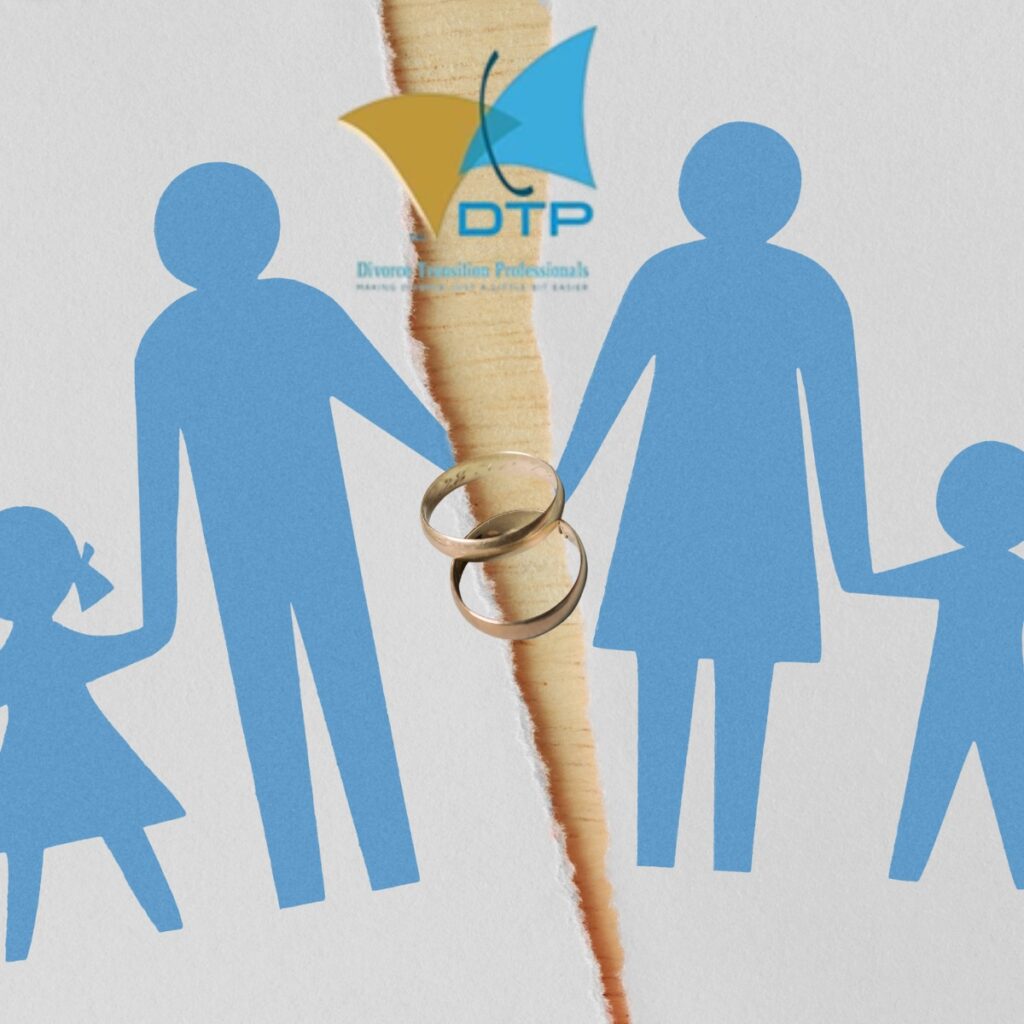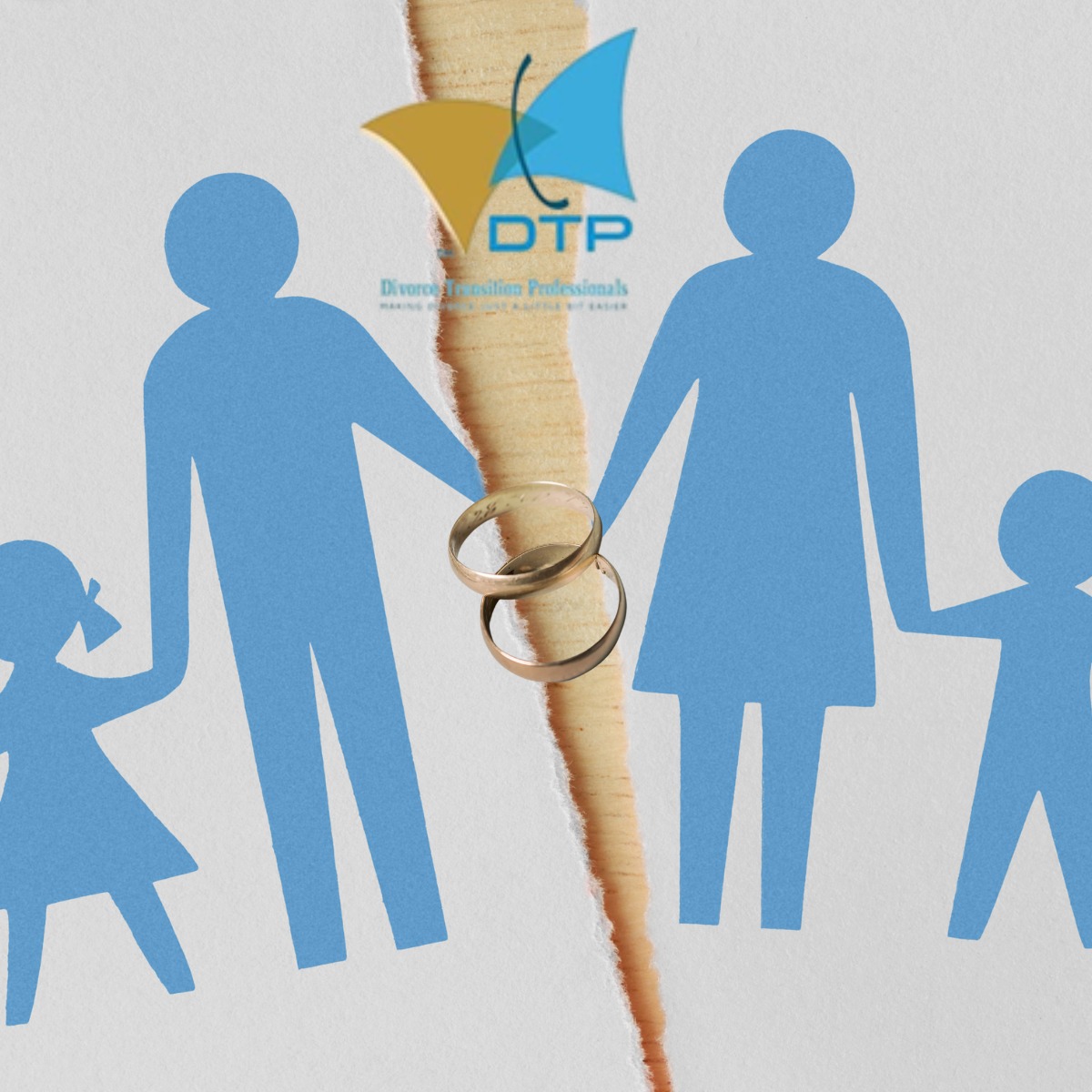Making Divorce Just a Little Bit Easier™
Welcome. Thank you for visiting our site. Our network of professionals is here to support you every step of the way. Divorce can be one of the most challenging times of your life, but you do not have to navigate it alone. Whether you’re considering, currently going through, or have recently finalized your divorce, our team of professionals is here to guide you through every legal, financial, emotional, and logistical step. We provide a trusted, well-organized network to ensure you have the support you need at every stage of the process.

How We Help:
- Legal Support: Collaborate with an experienced attorney and mediation specialist who understands the legal complexities of divorce.
- Financial & Tax Guidance: Partner with financial advisors and accountants who specialize in divorce financial planning, ensuring that all your documents and assets are in order.
- Real Estate & Mortgage Solutions: Work with real estate professionals and mortgage advisors who are ready to help with any home sale or purchase during or after divorce.
- Therapeutic Services: Access emotional and mental health support through licensed therapists who specialize in divorce and transition, and the emotional well-being of you and your children.
- And More: From credit repair, insurance agents, debt consolidation, and professional organizers to life coaches, we cover every aspect of your divorce journey.
We understand that during divorce, time is of the essence. That’s why our network of professionals is ready to provide fast, flexible, and effective solutions tailored to your unique needs. With DTP, you’re not just getting advice—you’re gaining access to a dynamic group of individuals who can offer immediate action to simplify the divorce process, help you thrive post-divorce, and seize new opportunities ahead.
Our Network
DTP was founded in 2008 and has since grown into a trusted national network with chapters in California, Texas, Colorado, and Florida, with more chapters on the horizon. This growing network allows us to collaborate, offer real-time resources, and ensure that you have access to the best professionals in the industry. At DTP, we believe in the power of relationships and emotional well-being during this transformative time. Whether you’re looking for support from someone who truly listens, seeking guidance from professionals who care, or needing the reassurance of a caring community, we’ve got you covered.
We understand that you need more than just practical advice—you need a network that makes you feel supported, heard, and respected. Our Glendale Chapter is a space where professionals come together not only to help you navigate divorce but also to help you heal, grow, and thrive in the process.
Knowledge (Expertise & Competence)
Whether you’re new to the process or seeking final steps for your divorce, our professionals bring over 25 years of combined experience and knowledge. We know the ins and outs of divorce and its impact on both your emotional well-being and your future financial security. From educational resources to up-to-date legal advice, we ensure that you’re making informed decisions every step of the way.
Meet Our Members
Our Glendale Chapter members bring expertise across various fields. Each professional is highly qualified and committed to providing the best advice and solutions, ensuring that your divorce transition is handled with care, expertise, and precision.
John C. Juarez – Financial Advisor with Edward Jones
President – Glendale Chapter
Liza Boubari – Hypnotherapist, Stress Management and Domestic Abuse Consultant
[email protected]
Stephanie Araneta-Clifford – Life Insurance Specialist with NYLife
Jacqueline Deleon – Certified Bookkeeper
Graham Hiremath – Mortgage Specialist
Tatevik Kechiyants – Mediation Specialist
Dr. Mona Kumar – Psychologist and Couples Therapy
Lori Selling – Real Estate and Divorce Specialist
Steven Unruh – Mediation Specialist, LMFT
Neil Palache – Founder, The Divorce Transition Professionals (DTP) &
Divorce Consultant/Financial Coach
Contact Us
If you’re in the midst of a divorce or considering this life change, we are here to guide you. Reach out today to connect with the right professional who can provide the support you need.
For Professionals: If you are a professional interested in joining the Glendale Chapter, please contact me directly. Together, we can make divorce just a little bit easier for those who need us most.
Domestic Abuse
Domestic violence in a marriage is a serious issue that can take many forms—physical, emotional, psychological, financial, and sexual. It can have devastating impacts on the victim and can affect the entire family structure. Below are the top 10 issues related to domestic violence in a marriage:
1. Cycle of Abuse
Domestic violence often follows a pattern: tension-building, an incident of violence, reconciliation, and calm. This cycle can make it harder for the victim to escape, as periods of calm or apologies can lead them to hope that the abuser will change.
2. Emotional and Psychological Impact
Victims of domestic violence often experience long-term emotional trauma, such as depression, anxiety, PTSD, and feelings of worthlessness. The emotional abuse can be subtle, making it difficult to recognize, but equally damaging.
3. Isolation and Control
Abusers often attempt to isolate their victims from friends, family, and other support systems, making it harder for the victim to seek help or even recognize that they are being abused. This isolation deepens their dependence on the abuser.
4. Financial Abuse
In many cases, abusers control the finances in the marriage, preventing their partner from having access to money, employment, or financial independence. This makes it extremely difficult for the victim to leave, as they lack resources and autonomy.
5. Physical and Sexual Abuse
Physical abuse can include hitting, slapping, choking, or any other violent act that causes harm. Sexual abuse can involve coercion, assault, or manipulation, and may include denying the victim’s right to say no or controlling their sexual autonomy.
6. Impact on Children
Children who witness domestic violence often experience emotional and behavioral issues, including anxiety, depression, and aggression. They may also become victims of abuse themselves or grow up to replicate abusive behaviors in their relationships.
7. Fear and Intimidation
Fear is a significant barrier to leaving an abusive marriage. Victims may fear for their own lives or the lives of their children. Abusers often use threats of harm or even death to maintain control, creating a climate of terror in the household.
8. Lack of Support and Resources
Victims often don’t know where to turn for help. There may be a lack of accessible resources such as shelters, counseling, or legal support, especially in rural or underserved areas. Additionally, cultural, societal, or religious factors may prevent victims from seeking help.
9. Shame and Guilt
Victims often feel ashamed or guilty, thinking that they are to blame for the abuse. This self-blame can prevent them from reaching out for help or from leaving the relationship, as they may feel responsible for the abuser’s actions.
10. Legal and Systemic Challenges
While laws against domestic violence exist, enforcement can be inconsistent. Victims may face difficulty in obtaining restraining orders, custody of children, or even legal recognition of the abuse. Some legal systems can be biased or fail to offer proper protection.
Additional Considerations:
- Cultural and Societal Factors: In some cultures, domestic violence may be normalized or overlooked. Social stigma may prevent victims from speaking out or leaving the relationship.
- Substance Abuse: While substance abuse doesn’t excuse violent behavior, it can exacerbate abusive patterns, making the violence more unpredictable and intense.
The path to breaking the cycle of domestic violence often requires a combination of legal, social, and psychological support, as well as a long-term commitment to change.
If you or someone you know is experiencing domestic violence, it’s critical to reach out to support organizations or professionals who can provide guidance, protection, and resources.
National Domestic Violence Hotline – https://www.thehotline.org/


